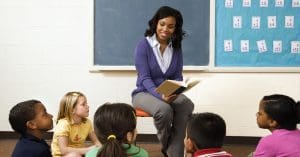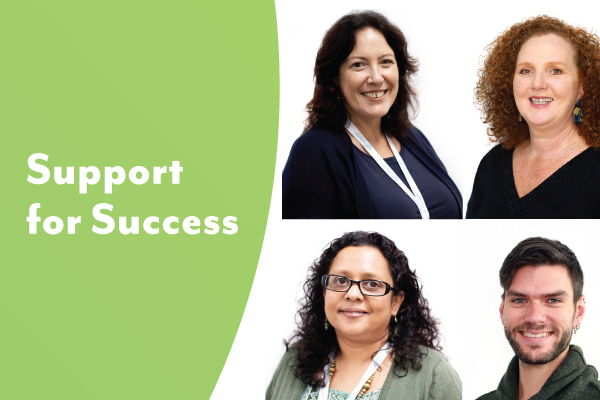Practical training is vital for many jobs that require hands-on skills, and early childhood education is one of them.
While learning through theory is an essential for any course, practical placement is a requirement of early childhood education qualifications and plays a significant role in getting you the highest possible quality of training.
Putting your theory into practice isn’t always easy, but with practical placement you can put apply your theoretical learning within real-life situations. Training that may have been difficult to picture can be applied on-the-job, deepening your understanding of early childhood education.

Developing skills for success
In ‘Strengthening Skills’, a 2019 report by the Commonwealth of Australia’s Department of the Prime Minister and Cabinet, work placement hours are explained to have the effect of influencing the quality of training learners receive, which “will help ensure graduates are exiting the VET system with the requisite amount of learning and skills.”
As a learner, you can expect to gain many benefits through placement, including:
- Improved skills and knowledge: As you see your theory come to life you will have an increased understanding of what your early childhood education career involves.
- Enhanced employment prospects: A little experience goes a long way and employers know this. Your practical placement will impress on your CV and in job interviews. In some situations, placement can even lead to employment after course completion.
- Increased confidence: Having experienced what your future workplace could encompass, you’ll have more confidence in both your studies and your job search.
Understanding what practical placement is
Sometimes known as work placement, practical placement is a component that is built in as a requirement of many courses. Learners must undertake a certain number of hours of training within the workplace relevant to their area of study. For example, with the Certificate III in Early Childhood Education and Care (CHC310113), learners are required to complete a minimum of 180 hours of practical placement.
Heading into the field and working with children gives you a thorough experience of your chosen career path. In early childhood education placement, you will be given duties to assist in the day to day running of a service. While you will not be left alone with children, you will have the opportunity to engage with children in play, set up activities, read stories during group time and support the educators in delivering quality care.
The practical placement component of a course may seem overwhelming, but what place to learn real-life job skills than in the real world? You can undertake practical placement at a workplace that is matched with your career goals and your personal circumstances, with our placement coordinator assisting in finding the right early learning service for you. To top it off, the skills you learn in your placement will enhance your training experience and help improve your outcomes.
Real-life context for learning
Training learners to be career-ready is our priority at Practical Outcomes. A qualification is one thing, but obtaining the relevant skills required to thrive in your chosen career is what is really important. Engaging with your learning in a meaningful way can improve the way you process the course material and improve your end result.
Completing placement also supports our commitment to human-centred learning, which is essentially applying your own curiosity, care and wellbeing to your training. Learners receive a practical placement journal, which facilitates self-reflection through placement. This enables learners to gain valuable insights into their own understanding of early childhood education and what they need to focus on to flourish.
Getting organised
Feeling worried about placement? Don’t be! You don’t just get sent off to practical placement without any support – the Practical Outcomes team will make the process simple and supported for you, helping you find the perfect practical placement workplace matched to your location, career goals and personal qualities.
To make the practical placement process easier, we let you know what to expect in advance. Ask your trainer or placement coordinator plenty of questions in the lead up so that when it comes time to start, you’re ready to go in and get the most out of the experience. Don’t be afraid to ask questions on the job too — it’s a great way to learn!
Practical placement with support
When you begin your placement, your trainer will visit you on the job to check in with you, find out how everything is going and ensure that you are getting the most out of the experience. Your trainer will also complete observations, giving you essential feedback to inform your learning and help you to grow through the placement journey.
Practical placement journal (human-centred learning)
During your practical placement journey, we will provide you with a practical placement journal which is part of how we support human-centred learning. Through self-reflection during placement, you will gain valuable insights into what you are learning, how you are learning and what you need to work on to achieve optimal outcomes.
Hands-on learning for better outcomes
For learners, there are many benefits of undertaking work placement during a course. This requirement not only offers personal and professional development, but can accelerate your learning capacity and employment prospects.
See your learning come to life in practical placement, and get ready for your career as an early childhood educator. Learn more about our courses here.



